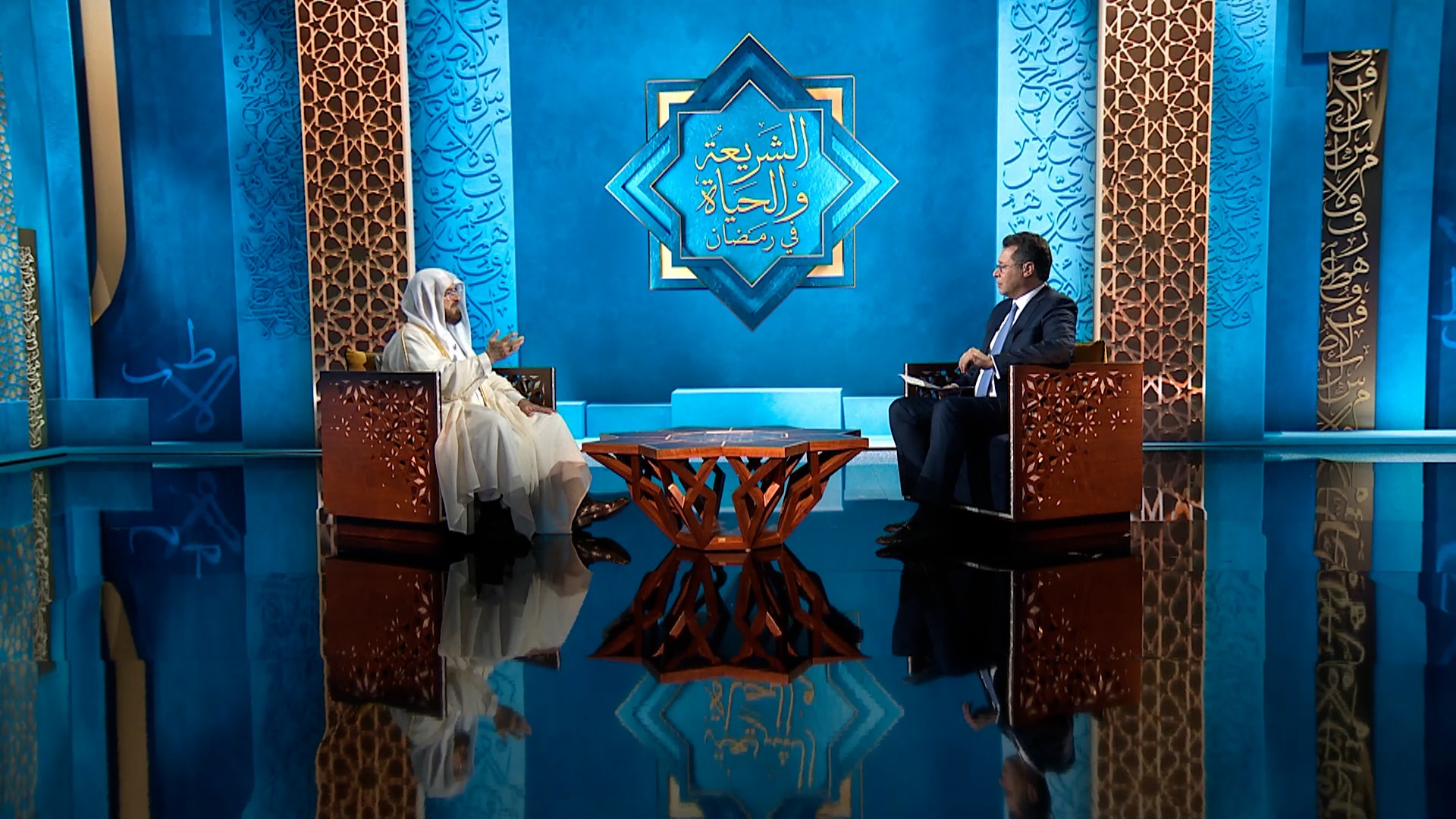play videoplay video
Video duration 50 minutes 58 seconds 50:58
The President of the International Union of Muslim Scholars, Dr. Ali Mohieddin Al-Qaradaghi, issued a fatwa that the funds allocated for the recommended Umrah or Hajj should be spent on the poor and needy in Gaza, Yemen, Syria, Somalia and the Rohingya.
This came in the fifth episode of the program “Sharia and Life in Ramadan,” which focused on the importance of spending money in light of the high prices, the multiplicity of afflictions, and many jurisprudential issues related to money and its movement in society.
Al-Qaradaghi pointed out that people in Gaza, Yemen or Syria are dying of hunger, and "our hearts shudder at the horror of what is happening in Gaza. Children and women are dying, and people are required to influence others who are less in need."
He stressed that "if a Muslim person dies from hunger, then Muslims, each according to his lineage and closeness, are accountable before God, and the person who did not fulfill God's rights will be held accountable on the Day of Resurrection."
Al-Qaradaghi recommended disbursing the money and spending it on these needy people, but pointed out a problem in how to deliver it to the poor, revealing at the same time a proposal presented to countries overlooking the Mediterranean Sea to deliver it by sea.
Regarding the timing of spending money as it relates to time and place, the Islamic preacher says, “When the need for money is greatest, the reward is greatest. The month of Ramadan, Mecca, and the person to whom it is given have a major role in increasing the reward.”
He adds, explaining, “Preference is due to need. When a person spends on a needy person and saves him with this charity, it is better in the sight of God than charity in Ramadan or in Mecca, but if charity is combined in Ramadan and among those on whom you spend and save them, it is better.”
Al-Qaradaghi explains that the jurists arranged the priority of spending in the normal case, starting with needy relatives, then the people of the region, then the closest, then the closest, while in the unusual case, such as today, zakat is transferred from what exceeds the subsistence limit to areas whose people are exposed to famine and death.
Zakat and spending priorities
The president of the International Union of Muslim Scholars says that the problem today is that the resources are few and the needy are many, and the defect here is due to a greater defect, explaining that God sent down zakat as an institution, including those working on it.
He adds, "It is the duty of the state to collect all types of zakat and apparent and hidden funds, and to develop a strategic plan for disbursing them," indicating that half of the zakat can be left to the person paying the zakat to dispose of it for his relatives, while the other half is directed to the entire state.
It shows that the Umayyad Caliph Amr bin Abdul Aziz developed a strategic plan for 3 years and was able to save the nation, as he moved it from the stage of extreme poverty to subsistence in the first year, then from the stage of subsistence to sufficiency, all the way to the stage of sufficiency to complete sufficiency (well-being).
Al-Qaradaghi revealed that he collected Muslim money twice, in 2007 and 2018, as Muslim zakat in 2018 - apart from sovereign funds and oil and gas zakat - amounted to between 400 and 500 billion dollars, adding that “if there was a strategic plan, there would be no poor people left, but there is a problem with collecting money and poor… "By distribution."
The importance of spending
The head of the International Union of Muslim Scholars says that spending in Islam is matched by consumption in capitalist and non-capitalist terms, and spending - from an economic standpoint - is one of the most important reasons for increasing production, and without spending there is no production.
He explains that Islam establishes spending and links it to belief and faith. “Money is God’s money, and man is a steward of this money, and it is necessary to implement God’s command because spending in Islam is very great.”
He confirms that religious roots make spending money easy, and “God makes spending easy because we spend from God’s money on the poor,” indicating that there are degrees for a person to spend.
It is explained here that God saves a person from Hell because of money and a group of reasons when paying what is due, which is zakat, while a person deserves gardens and bliss when he does not give to the poor according to the amount of zakat, but rather according to the need, and the highest paradise is for the one who disposes of his money and hastens to do good deeds.
He adds that the rule says, “The greater the belief in God and the greater the belief in Him, the easier it is for a person to spend this money.”
Source: Al Jazeera

